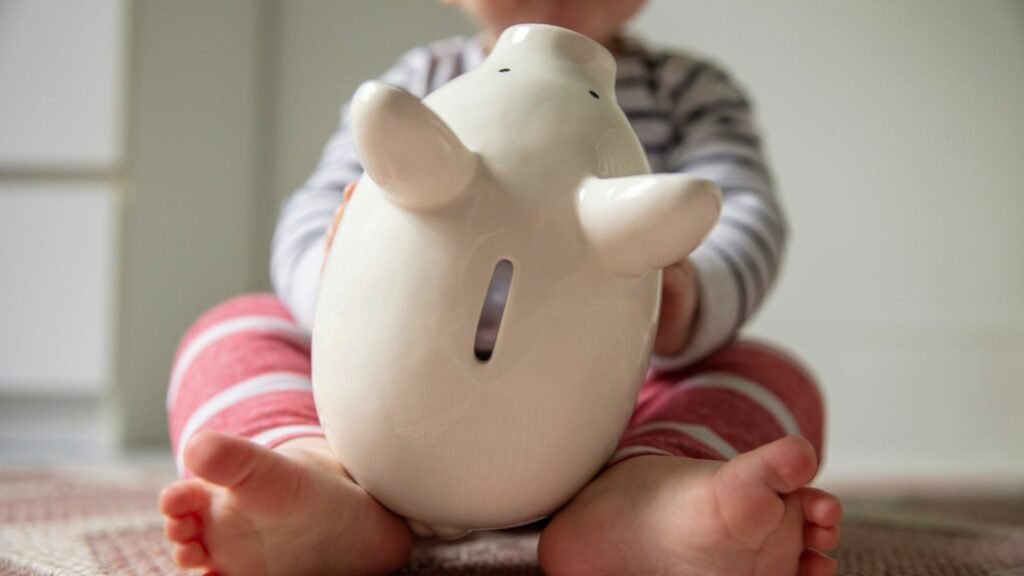Raising children in today’s world is more expensive than ever before. While parents dream naturally and look forward to the joys of parenthood, they often ignore the financial realities as they can be overwhelming. From rising healthcare costs to the price of extracurricular activities, we look at 22 harsh truths about the cost of raising a child in today’s economy:
The Total Cost of Raising a Child

According to the U.S. Department of Agriculture, the average cost of raising a child to the age of 18 in the U.S. is about $233,000. This figure covers food, housing, education, healthcare and other essentials, leaving many parents shocked by the financial demands.
Childcare is One of the Biggest Expenses

In many areas, childcare costs can rival or even exceed the cost of tuition at a private college. On average, families spend upwards of $10,000 to $20,000 annually on childcare, depending on location and the age of the child.
Healthcare Costs Are Skyrocketing

Raising a child includes medical expenses like doctor’s visits, vaccinations, prescriptions, and unforeseen emergencies. The average family with children spends thousands of dollars annually on health-related costs, especially with the rise in insurance premiums.
Education Expenses Add Up Quickly

From preschool to college, education is expensive. Private schools, extracurricular activities, tutoring and even public school-related costs can quickly surpass thousands of dollars. Not to mention, saving for college has become an increasingly difficult task.
Food Costs Are Higher Than Ever

Feeding a child has become significantly more expensive. From baby formula to school lunches to groceries, food costs are rising at a rate that outpaces inflation. Families spend an average of $1,000 per month on groceries for a family of four, which includes feeding growing teens and active children.
The Cost of Housing Expands

As families grow, so does the need for more space. Buying a larger home or renting a bigger space adds to monthly housing costs, making it a large portion of any family’s budget. Mortgage payments, rent, utilities and property taxes can drain finances quickly.
Clothing and Shoes Are Ongoing Expenses

Children grow quickly, and with growth comes the need for new clothes and shoes every season. Parents often find themselves replacing shoes, jackets and everyday clothing multiple times a year, adding hundreds of dollars to the cost of raising a child.
Transportation Costs Multiply

Having children usually requires larger vehicles, think minivans or SUVs, along with additional car seats, strollers and other gear. Fuel costs and maintenance for these larger vehicles, plus the added cost of public transportation or ride-share services, increase overall family expenses.
Technology Costs for Kids

In today’s digital age, children often need computers, tablets, smartphones and other devices for schoolwork and entertainment. Whether it’s for online learning or gaming, these devices and the monthly internet bill can quickly add up.
Costs of Extracurricular Activities

Sports, music lessons, dance classes and summer camps are just some of the extracurricular activities that children may want to participate in. These activities can cost anywhere from a few hundred to several thousand dollars per year.
Social Life and Entertainment for Kids

Whether it’s birthday parties, theme parks, or outings with friends, the cost of entertaining children and supporting their social lives can add up. Parents can spend hundreds of dollars on tickets, gifts and food just to keep their kids happy and entertained.
Birth-Related Expenses Are Steep

Even before a child is born, there are significant costs to consider. Prenatal care, labor and delivery expenses, baby gear and hospital stays add up quickly. Some families face medical bills even with insurance coverage, especially for complications during delivery.
Parental Leave Reduces Household Income

Many families face a significant income reduction during parental leave. Whether a parent decides to take time off to care for their newborn or cut back on hours, the loss of income can have long-term financial implications.
Emergency and Unplanned Expenses

Children tend to require unexpected medical attention, repairs to items they’ve broken, or special accommodations for their needs. These unplanned expenses can throw a wrench in the family budget and are often difficult to predict.
Psychological Stress from Financial Strain

The financial strain of raising children can lead to stress and mental health issues, particularly as parents try to balance the cost of raising a family with other life goals like saving for retirement or maintaining personal well-being.
Rising Costs of Diapers and Baby Products

Parents of infants spend large sums on diapers, baby wipes, formula and other essentials. These items are not only expensive, but they need to be replenished frequently, often making it feel like an endless expense.
Cost of Special Needs Care

Children with special needs can require additional care, from therapies and special education services to assistive devices and transportation. These services are often not covered entirely by insurance and can add thousands of dollars to the cost of raising a child.
Increasing College Tuition

As children grow, the looming expense of college becomes even more daunting. Tuition fees for universities have increased at a rapid rate, making it challenging for parents to save enough to cover the cost of higher education for their children. Many families rely on loans or scholarships, but the financial burden is still significant.
The Hidden Cost of Time

Being a parent isn’t just a financial commitment; it’s also a time investment. The time spent driving kids to and from activities, staying home for sick days and attending school functions can limit career opportunities or the ability to earn extra income.
Opportunity Cost of Raising Children

Raising children often leads to missed opportunities for both parents, especially in terms of career advancement or business opportunities. Parents may take a step back from work, lose out on promotions, or even put off personal ambitions to prioritize family life.
The Cost of Family Vacations

Planning vacations as a family means multiplying costs, from accommodations to meals, transportation and attractions. Travel costs can become significantly more expensive as children grow and their needs change.
Retirement Savings Are Often Affected

Many parents find it difficult to balance their savings for their future while simultaneously providing for their children’s needs. As a result, retirement accounts often fall by the wayside, putting long-term financial security at risk.
18 Reasons Why People Are Leaving Florida in Masses

Exploring factors that impact the desirability of living in Florida, this list delves into various challenges shaping residents’ experiences. From environmental concerns like rising sea levels to economic factors such as fluctuating job markets, these issues collectively contribute to a nuanced understanding of the state’s appeal.
18 Reasons Why People Are Leaving Florida in Masses
